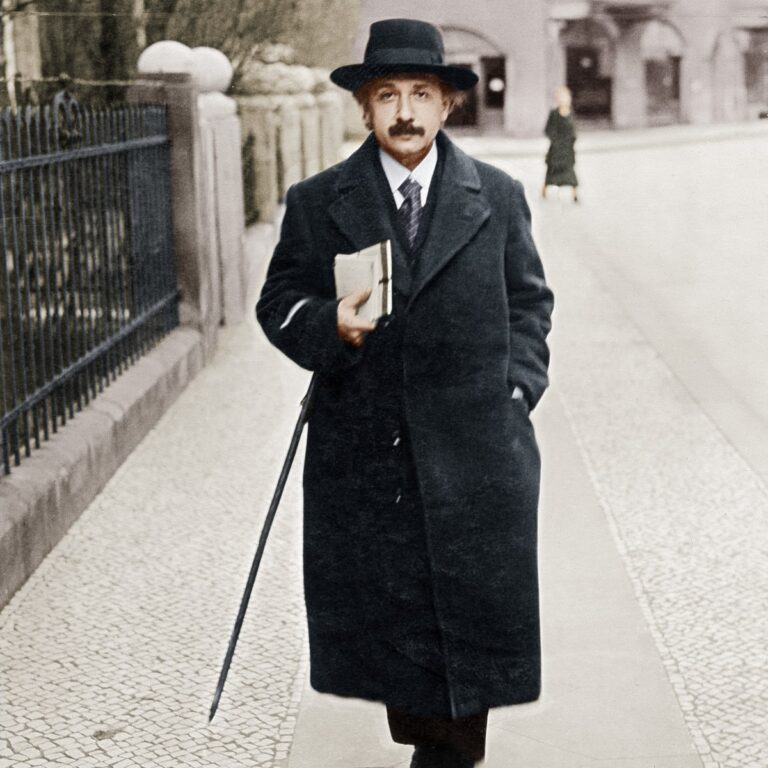
The rate at which quantum computing is hitting the media stream is ever-increasing. This piece is a collection of recent articles and reports covering various aspects of quantum computing from the lens of science and research. Mea Cubitt
TIME CRYSTALS IN THE LIMELIGHT | UC Berkeley physicist Norman Yao first described five years ago how to make a time crystal — a new form of matter whose patterns repeat in time instead of space. Unlike crystals of emerald or ruby, however, those time crystals existed for only a fraction of a second. Source: Physics BERKELEY. TIME CRYSTALS IN THE LIMELIGHT…
Study gathers evidence of topological superconductivity in the transition metal 4Hb-TaS2 | Topological superconductors are a class of superconducting materials characterized by sub-gap zero energy localized modes, known as Majorana boundary states (MBSs). These materials are promising for the development of quantum computing technology. Source: PHYS.ORG. Study gathers evidence of topological superconductivity in the transition metal 4Hb-TaS2…
Strange Quasiparticles – Called Anyons – May Be Useful in Future Quantum Computers | By observing how strange particles called anyons dissipate heat, researchers have shown that they can probe the properties of these particles in systems that could be relevant for topological quantum computing. A team of Brown University researchers has shown a new method of probing the properties of anyons, strange quasiparticles that could be useful in future quantum computers. Source: E BREAKING NEWS. Strange Quasiparticles – Called Anyons – May Be Useful in Future Quantum Computers…
Researchers Find Human Learning Can be Duplicated in Synthetic Matter | Rutgers researchers and their collaborators have found that learning — a universal feature of intelligence in living beings — can be mimicked in synthetic matter, a discovery that in turn could inspire new algorithms for artificial intelligence (AI). Source: RUTGERS. Researchers Find Human Learning Can be Duplicated in Synthetic Matter…
Researchers achieve first quantum simulation of baryons | A team of researchers led by an Institute for Quantum Computing (IQC) faculty member performed the first-ever simulation of baryons—fundamental quantum particles—on a quantum computer. Source: PHYS.ORG. Researchers achieve first quantum simulation of baryons…
Quantum computing breakthrough may help us learn about the earliest moments of the universe | The latest breakthrough in the field of quantum computing could pave the way for complex simulations that tell us about the earliest moments of the universe and more. Source: techradar.pro. Quantum computing breakthrough may help us learn about the earliest moments of the universe…
Multiport based teleportation – transmission of a large amount of quantum information | We analyse the problem of transmitting a number of unknown quantum states or one composite system in one go. We derive a lower bound on the performance of such process, measured in the entanglement fidelity. The obtained bound is effectively computable and outperforms the explicit values of the entanglement fidelity calculated for the pre-existing variants of the port-based protocols, allowing for teleportation of a much larger amount of quantum information. The comparison with the exact formulas and similar analysis for the probabilistic scheme is also discussed. In particular, we present the closed-form expressions for the entanglement fidelity and for the probability of success in the probabilistic scheme in the qubit case in the picture of the spin angular momentum. Source: Quantum Journal. Multiport based teleportation – transmission of a large amount of quantum information…
Key Witness Helps Scientists Detect ‘Spooky’ Quantum Entanglement in Solid Materials | Quantum entanglement occurs when two particles appear to communicate without a physical connection, a phenomenon Albert Einstein famously called “spooky action at a distance.” Nearly 90 years later, a team led by the U.S. Department of Energy’s Oak Ridge National Laboratory demonstrated the viability of a “quantum entanglement witness” capable of proving the presence of entanglement between magnetic particles, or spins, in a quantum material. Source: HPC wire. Key Witness Helps Scientists Detect ‘Spooky’ Quantum Entanglement in Solid Materials…
How a novel radio frequency control system enhances quantum computers | A team of physicists and engineers at Lawrence Berkeley National Laboratory (Berkeley Lab) successfully demonstrated the feasibility of low-cost and high-performance radio frequency modules for qubit controls at room temperature. They built a series of compact radio frequency (RF) modules that mix signals to improve the reliability of control systems for superconducting quantum processors. Their tests proved that using modular design methods reduces the cost and size of traditional RF control systems while still delivering superior or comparable performance levels to those commercially available. Source: PHYS.ORG. How a novel radio frequency control system enhances quantum computers…
HAVING YOUR CAKE AND EATING IT TOO: DOUBLE-DOSING INDUCES MAGNETISM WHILE STRENGTHENING ELECTRON QUANTUM OSCILLATIONS IN A TOPOLOGICAL INSULATOR | A University of Wollongong-led team across three FLEET nodes has combined two traditional semiconductor doping methods to achieve new efficiencies in the topological insulator bismuth-selenide (Bi2Se3), Source: FLEET. HAVING YOUR CAKE AND EATING IT TOO: DOUBLE-DOSING INDUCES MAGNETISM WHILE STRENGTHENING ELECTRON QUANTUM OSCILLATIONS IN A TOPOLOGICAL INSULATOR…
Competing quantum interactions enable single molecules to stand up | Nanoscale machinery has many uses, including drug delivery, single-atom transistor technology, or memory storage. However, the machinery must be assembled at the nanoscale which is a considerable challenge for researchers. Source: ScienceDaily. Competing quantum interactions enable single molecules to stand up…

